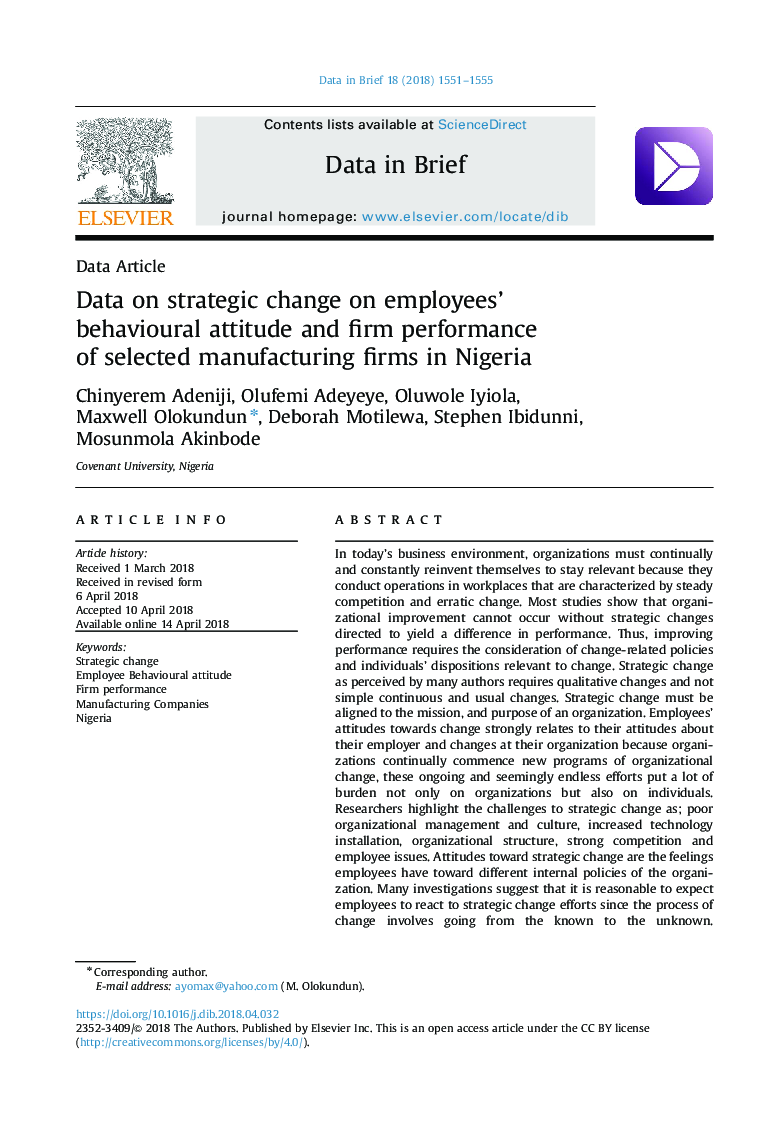| Article ID | Journal | Published Year | Pages | File Type |
|---|---|---|---|---|
| 6596754 | Data in Brief | 2018 | 5 Pages |
Abstract
In today's business environment, organizations must continually and constantly reinvent themselves to stay relevant because they conduct operations in workplaces that are characterized by steady competition and erratic change. Most studies show that organizational improvement cannot occur without strategic changes directed to yield a difference in performance. Thus, improving performance requires the consideration of change-related policies and individuals' dispositions relevant to change. Strategic change as perceived by many authors requires qualitative changes and not simple continuous and usual changes. Strategic change must be aligned to the mission, and purpose of an organization. Employees' attitudes towards change strongly relates to their attitudes about their employer and changes at their organization because organizations continually commence new programs of organizational change, these ongoing and seemingly endless efforts put a lot of burden not only on organizations but also on individuals. Researchers highlight the challenges to strategic change as; poor organizational management and culture, increased technology installation, organizational structure, strong competition and employee issues. Attitudes toward strategic change are the feelings employees have toward different internal policies of the organization. Many investigations suggest that it is reasonable to expect employees to react to strategic change efforts since the process of change involves going from the known to the unknown. Consequently, it can be a very unpleasant experience for employees thus this article presents data in this regard.
Related Topics
Physical Sciences and Engineering
Chemical Engineering
Chemical Engineering (General)
Authors
Chinyerem Adeniji, Olufemi Adeyeye, Oluwole Iyiola, Maxwell Olokundun, Deborah Motilewa, Stephen Ibidunni, Mosunmola Akinbode,
